Nicolas Colsaerts on the Challenges of Away Ryder Cups, Playing Against Tiger Woods, and More
We caught up with the former Ryder Cup player and vice captain ahead of this week's matches
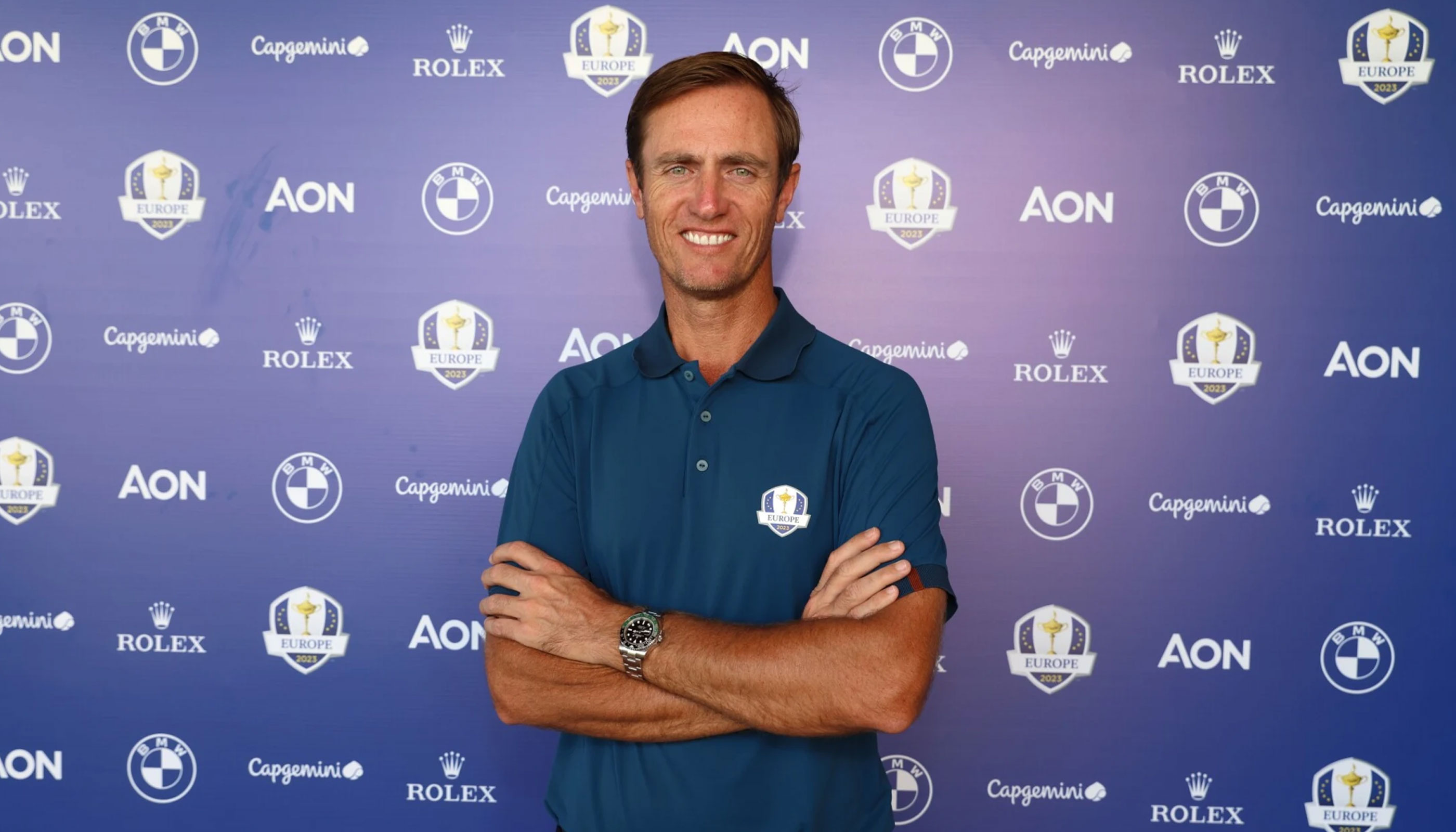

The Ryder Cup is an event that has defined Nicolas Colsaerts’ career. He says so himself.
In 2012, Colsaerts became the first Belgian to participate in the Ryder Cup, contributing towards Europe’s dramatic comeback victory in the “Miracle at Medinah.” It remains the most recent time the away team has won the Ryder Cup. In 2023, Colsaerts served as a vice captain in Rome under captain Luke Donald as Europe once again defeated the Americans.
Ahead of this week’s Ryder Cup at Bethpage, I caught up with Colsaerts to discuss being paired against Tiger Woods at Medinah, the challenges of playing an away Ryder Cup, pairings strategy, what the competition means to him, and much more.
Nico, let's start here. What does the Ryder Cup mean to you?
Nicolas Colsaerts: It means so much. This competition has had an impact on me since the first second I laid eyes on it, which was the 1991 Ryder Cup in Kiawah, the “War on the Shore.”
I had just started playing the game. I was playing at a small nine-hole golf course in the middle of a horse track in Brussels. Funny enough, there were a bunch of Brits who were members there and they were all glued to the TV. I realized that there was a communion with people. They were looking at this event in a different way.
Then I was lucky enough to play two Junior Ryder Cups, so I got to see the event up close in ‘97 at Valderrama and ‘99 at Brookline, which was a controversial edition. I like to think my schooling of the Ryder Cup was pretty healthy from a European point of view. I am really lucky to have understood what the Ryder Cup was about from an early age and still do to this day.
MORE: Fried Egg Golf's Ryder Cup Content Hub
You were famously part of the Miracle at Medinah. What can you remember from that week?
I remember a lot of things and then a lot of things I don’t remember. It’s very difficult to remember the whole thing because it's a long week. A lot of things happen. I remember quite vividly hopping on the plane from London, putting the suits on for the first time, realizing that this is really becoming something real.
I remember the opening ceremony. I was first in line next to (José Maria) Olazábal. I remember seeing the European flag going up and telling myself that every two years there are only 12 guys who get this opportunity. I remember most of the first day in the match with Tiger. I'm lucky that the European Tour or Ryder Cup have posted the footage of my round to refresh my memory a little bit. I do remember most of the cool stuff that week.
How many times would you estimate you've rewatched the highlights of that match?
Well I don't want to sound like a narcissist, but I watch it a fair bit. Every time I'm alone in my hotel room and I find time to be a little bit long, I go back down the memory road and remember a round that has really had an impact not just on myself, but it’s what I'm remembered for. You'd be amazed at how many people, not just in Europe, but all around the world remember that match against Tiger and (Steve) Stricker that I played with Lee Westwood in the first round in Medinah.
And the fact that you're a member of a team that has really marked people's memories. Everybody who watched the Ryder Cup in Medinah remembers very well that they couldn't turn the TV off because the story and the timeline of the whole week, especially on Sunday, was quite incredible to watch.
Getting matched up against Tiger Woods is a crazy way to make your Ryder Cup debut. What was your reaction to seeing that you were going to be playing against Tiger that day? And what do you remember from the match that didn’t require refreshing your memory with the highlights posted online?
I was so immersed in my mission. Also knowing that I was playing quite well. I was on a really good run. The fact that some of the big guys from our team had put their hand up to play with me, whether it was Sergio (Garcia), (Ian) Poulter, or Westwood, you're a little bit flattered that as a rookie, these guys are willing to play with you and take you on board. It puts you into a very comfortable position.
So playing Tiger was, don’t get me wrong, of course it's a thing. You see the lineup and you go, “Gee, wow, we're playing Tiger and Stricker, that's kind of solid.” But at the same time, the pairing that I didn't want to play was Phil Mickelson and Keegan Bradley. Because for the people who remember, these guys were running around the greens and making putts and really rallied the crowds.
And the other part of it is, as a rookie, if you play against Tiger and Stricker in the first round and you get beat 5-and-4, no one is going to judge you for it because you’re playing Tiger, one of the greatest, if not the greatest golfer that's ever lived.
I do remember bits from that round. I made eight birdies and an eagle but I also hit the hole on the first hole, I horseshoed on the third, I made five on the par-5 No. 14 with a 5-iron in my hand on the second shot. That round could have actually been a lot lower.
When I worked for TV at Whistling Straits, I actually went back to Medinah. Knowing Luke Donald a little bit and Luke being in the Chicago area, I asked him if he had any contacts at Medinah and if he could make a call for me to come out and have a look at the course. And I went back around Medinah on my own the Monday after Whistling Straits. I realized that when you look at the footage of my match, it looks like I'm holing one 40-footer after another, but the greens at Medinah are actually quite small. It's not like I was making 40-footers; there were a bunch of 12-, 15-, 18-, 20-footers in there.
Obviously you don’t think you’re going to make them all, but they weren’t as obscene as everybody made it out to be. But yes, let’s be honest: It’s stupid to produce a round that incredible in your first round at the Ryder Cup.
Can you explain what it's like to hit your first tee shot at a Ryder Cup and what you're feeling in that moment?
You are not yourself. They tell you to go in the morning to watch the others tee off. And when you watch the greats of the game, like I remember Tiger hit a tree that was about 40 yards offline left. Graeme McDowell hit a drop shot quick hook that pitched about 220 yards. Jim Furyk did exactly the same thing.
It puts yourself a little bit at ease thinking, “This is the first time I'm going around this thing. I have the right to hit a 2-out-of-10 golf shot off the first tee.”
But yes, it’s kind of frightening because except for someone like Bubba Watson who asks the crowd to get loud and keep the noise going, you go from it being really, really loud to having absolutely no noise whatsoever when you stand over the ball. That’s extremely daunting.
It’s almost like you hear your heartbeat. My knees were going all over the place. My hands were going all over the place. I started to see the ball blur. It wasn't a round object. It was just like a white dot somewhere. And I was just hoping that I could put a decent swing on it.
By miracle, I hit the middle of the club face with my 3-wood and flew a bunker that was about 300 yards away with all the adrenaline. Westwood looked at me and was like, “That's muscle memory, son.”
It's quite a difficult, if not the most difficult golf shot that you're ever going to hit in your life.
You were the only European rookie at the 2012 Ryder Cup. What unique challenges does a rookie at the Ryder Cup face? Is the importance of experience overblown or is that legitimately beneficial for players who tee it up at the Ryder Cup?
I think it depends on your personality, your understanding of the competition, how much you know about team sports, and how you feel inside a group. I played a lot of team sports when I was young, so it was never an issue for me to be in a room with a group of guys that I had huge respect for.
I never had to play any sort of game to try to be accepted or anything like that. It also helped that I was playing really well. I never felt that I had to be taught how to behave in a locker room in any way, shape, or form. A locker room is a place that has not certain rules, but a certain etiquette and a way to go about things. From the start, I felt extremely comfortable, but sometimes it takes a bit of time for different personalities to just be themselves.
We’ve seen some unexpected results in the Ryder Cup. A notable example would be Tiger Woods' poor record. How do you make sense of that?
In Tiger's case, it's very surprising. It's very surprising because when you look at his record in the U.S. Am and Junior Ams, it's very surprising that he's not been able to have a better record in the Ryder Cup.
I think the U.S. always had difficulty finding the right partner for him. There was the huge fiasco when Hal Sutton was the captain and paired Tiger with Phil Mickelson, when back in the day it was quite publicly known that the two clearly weren't getting along. Stricker is probably the guy he ended up playing with the most because they seemed to get along well.
But the record just doesn't add up to what Tiger has been able to do throughout his career. We're talking about the Michael Jordan of golf. We're talking about the Muhammad Ali of golf. And that just hasn’t translated into his Ryder Cup record. I can't give you an answer and I don't think a lot of people can. It's very surprising.
{{inline-article}}
Is there any credence to the notion that sometimes the American mindset is very individual, very stroke-play oriented, and potentially Tiger's Ryder Cup record is evidence of that? Or is that too much of a stretch?
Well, when you play regularly on the PGA Tour, the competition in the U.S. is a lot stronger. Like you say, it's maybe a bit more individualistic in some way. It’s not like Americans don't understand the Ryder Cup to the same level we do, but I think the affiliation and the sense of representation of what it means to each side contributes to us maybe making a bit more of a point to be ready and look into every detail.
Also maybe we have found a bit more of a winning recipe and an understanding of what works for us compared to the other side. It's very surprising that the Americans haven't really worked that out. I think (Paul) Azinger was one of the guys who seemed to have worked things out the best with that pod system, at least from what we could see on the outside because the two sides don’t really talk to each other.
I think both sides would like to be a fly on the wall to see what happens on the other side at times, to understand the thinking. But with the quality of the players that the Americans have had for the last 100 years, it's surprising that they haven't had the trend we've been able to produce from the European side.
Pablo Larrazabal posted online, lamenting that zero players on this year’s Team Europe play DP World Tour schedules. Decades ago, European players talked about representing the European Tour at the Ryder Cup. In today’s game, who do you feel like you're representing when you play for Team Europe? Are you just representing the entity of Team Europe and the continent, or does it still feel like you're representing the tour even though members of Team Europe tend to play full-time schedules away from the DP World Tour?
No, I think you still do represent the tour because most of our guys have started on the European Tour, with a few exceptions like Ludvig (Aberg). But even somebody like Sergio, he played his first couple of seasons on the European Tour. He won the Murphy's Irish Open when he was 19 or 20 or whenever it was. Everybody has always had a very strong affiliation to the European Tour, now DP World Tour.
The ecosystem has changed. I don't think that Pablo's comment is relevant because now if you are a top 20, top 50, top 80, or top 100 player in the world, you are playing on the PGA Tour and that's just the way it is.
You still represent where you're from, though. We are clearly from each side of the Atlantic. The life on each side and the way that we've been brought up into the game is very different. I'm not saying that a country club in the U.S. doesn't have the same vibe as a private golf course in the U.K., but even within our team, the British Isles and the continent of Europe have two very different lifestyles.
What amazes me is the way that we have found a recipe to put a German, a Scandinavian, a Spanish, a Scot, and an English together and understand each other to the same level coming from very different cultures. Versus in America, you have the same culture, you come from the same country, you've lived pretty much the same lives. I find that fascinating.
The away team has not won the Ryder Cup since the team you were part of in 2012. Let’s take course setup out of the equation: What makes it so difficult to win on the road?
Excluding the course setup, it’s what you hear. You’re playing in a different atmosphere, you hear different accents, you hear a different sense of humor. What us Europeans are hearing from the crowd in the U.S. hits us a certain way and what Americans hear in Europe hits them a certain way as well.
We tend to think that what we hear in the U.S. is a bit more vile and a bit more direct and a bit more aggressive. But then Americans tend to think that they receive the same thing when they come over in Europe. That’s just the way that we are wired. That's the way that our social markers are different. It's very difficult to understand exactly why.
Let's also not forget that the captains are changing, except for this time with Luke doing it again. It’s not always the same 12 players every time. You have to find different pairings. There's always a little bit of a roll of the dice of how the team is going to be managed. Have we figured out our pairings the best possible way? Are our guys performing? Because ultimately, you can prepare the best way you want. It's still down to how your 12 guys perform on the golf course.
So there are a lot of elements. I know that there is a pattern of home winners, but in the end, there is no written-in-stone reason why an away team has not been able to win a Ryder Cup since Medinah.
{{inline-course}}
I have a few questions for you about narratives and whether they are true or untrue, but before I ask those, I'll open the floor to you. Is there any media-driven Ryder Cup narrative that you roll your eyes at from the perspective of somebody who has both competed and been a vice captain?
No, not necessarily. The main media-related thing that comes to mind is that at Medinah, we didn't like David Feherty pleading allegiance to America, being a European. That is something I remember that fired us up. We understand that David Feherty is very happy living in America, that he's very happy with what the country of America has given him and everything. But for somebody who has represented Europe, we thought that that was a little bit out of line.
Sometimes there are a few things said here and there that you can use as motivation. Let’s not forget that you don't necessarily have to look at everything that's been said and see it as a form of aggression. It can be positive fuel.
Listen, there are always the people in the press that we know that we respect and there are always a couple of people that are coming up with a thing and you just go, “All right, dude, next question.” The world of golf might seem pretty big from the outside but when you're at the top of the tree, everybody knows each other very well and everybody knows who's capable of saying something intelligent and somebody who might say something a little bit stupid.
The idea of a match play specialist, is that real? If so, what makes somebody a fierce match play competitor?
Yes, I think it's a real thing. If you look at guys from our side, Colin Montgomerie has never lost in singles. Poulter, we don’t need to explain how Poulter has done at the Ryder Cup. On the other side, Chris DiMarco was somebody that I would have hated to play. Paul Azinger was somebody that you would hate to play as well. They just have this determination.
Seve (Ballesteros) is our biggest inspiration. With Seve, it's never over. It's not over until it's over. Olazábal tells this story where they’re playing at The Belfry and they're in like four in a green-side bunker on a par 4 and Seve is not willing to give away the hole. I think it was the 11th hole, and the Americans are either on the green or by the green in two and the Europeans lie four in a bunker. Olazábal tells Seve, “Seve, let's go.” Seve said, “No, no, no, no, no, no.”
So that is a trait of character. It's something in the DNA to absolutely not let go and not give an inch and believe until the end.
Do we over-assign blame and credit – depending on the result – to captains when more of the outcome is determined by how the players hit the ball that week and how many putts they make?
The unfortunate thing about being a captain is you are judged at the end of the week. At Medinah, for example, I think Davis Love was an exceptional captain. He's one of the biggest class acts that side has ever had. And due to a miracle, his captaincy goes down the drain and you’re remembered as a losing team when it doesn't really look like Davis Love put a foot wrong.
Captaincy is a big role. You have to be at a lot of different spots. You have to do a lot of work beforehand. For those who don’t know, when you're the home captain, you have two to three times the amount of work as the away captain because you have to organize a bunch of other things. All the outings, all the dinners, all that kind of stuff. I was in the loop at Rome and saw Luke and his wife Diane organizing everything and they did an absolutely incredible job.
Like they closed down the Spanish Steps, which is probably the second or third time in the history of Rome where they’ve closed the Spanish Steps. So you can imagine the number of meetings that you have to attend to close down one of the biggest tourist attractions in Europe, if not the world. There are a lot of things that go into the captaincy. It’s just unfortunate that your captaincy is basically judged on the result at the end of the week.
If you were a captain, how much would the golf balls players use factor into who you decided to pair in foursomes? In 2012, when you played with Sergio in foursomes, how did that conversation go down about which golf ball you two were going to play?
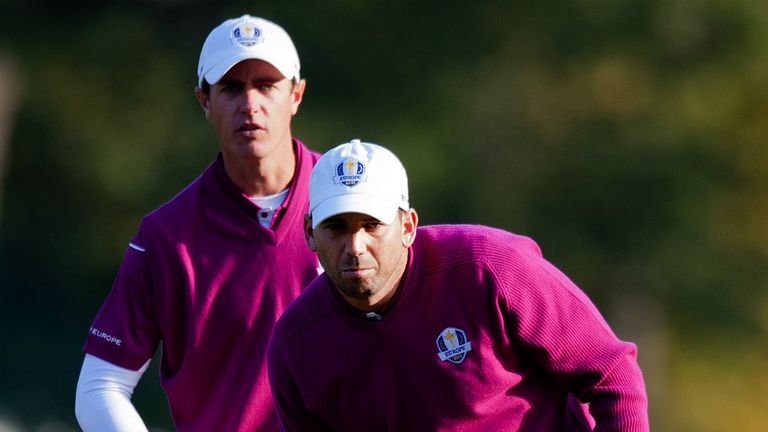
Well, Sergio was the one who wanted to play with me, so I told him quickly we were going to play the golf ball I'm using (laughs). So it wasn't really a debate. And Sergio being Sergio, one of the best ball strikers in the game, you could give him a cricket ball or a rock, and he could still hit the green with it.
I think it depends on personalities. I know that from our side, there are a few guys who are reluctant to hit a different golf ball. Some use the high-spin ones, some hit the low-spin ones, some use the softer, or the black, the red. And some guys have absolutely no problem playing a different golf ball. I know for a fact that Rory (McIlroy) has no problem playing someone else's ball, which as a captain, when you're trying to do your foursomes pairings, it's a bit of a luxury to have somebody that good who is willing to say, “You know what, just give me anything with a bit of dimples. Something that’s white and round, with a bit of dimples on them and we're going.”
That’s a personality thing, but it's something to look into when you're looking at putting out your four best possible foursomes pairings.
There’s a perception with very long-hitting golfers that they might be high variance and more suited for fourballs than foursomes. Bryson DeChambeau would be an example of a player who fits that mold. As a very long driver yourself, what’s your perspective on that?
Imagine for one second that you put Bryson DeChambeau with somebody with one of the best wedge games in history. Imagine a combination like Bryson DeChambeau and Zach Johnson at his peak. Because Bryson can putt, he can clearly putt.
So I don't think that should be a thing. It comes down to the course setup and what kind of golf course you're playing and how the odd-numbered holes and even-numbered holes work out.
A pairing like that might work out extremely well because of how the odds and evens set up and who is hitting more second shots into par 4s and who is attacking par 5s and who is going to have to chip a lot. You have to look at the data on foursomes and go really deep into that. You have to look at who is doing what, who is driving the ball, who is missing the greens, who is hitting a lot of greens, who might have to chip a lot if the other guy doesn't show up.
The foursomes have a Plan A, B, and C. You always like to think about the best-case scenario, but you always have to consider what can go wrong. That’s why foursomes is a very, very difficult format to master. And that's why over on the European side, I think it's quite clear that having played a lot of foursomes when we're young is why foursomes has worked extremely well for us in the Ryder Cup.
What were your biggest learnings from your role as a vice captain in 2023 and the strategic side of captaining? Did anything change your perspective compared to your experience as a player in the event?
It's not necessarily the analytical part of the Ryder Cup that struck me the most because we have Edoardo Molinari doing that and he's one of the best in the business. My concentration was more about how I read the room to look at the different personalities. How do you approach whatever news you're trying to bring the guys, whether it's Ludvig Aberg or Bob MacIntyre, who was playing in his first one? How do you talk to Justin Rose? How do you get something out of Jon Rahm or Rory McIlroy?
I've always loved sports documentaries. The best place to be at a sporting event or team sports environment is the locker room. It's where you see the real faces, it's where you see what really lays within the guys and how they interact with one another, who's doing what, who is vocal, who is willing to take the lead, who is happy to stay in his corner, doing his thing, preparing at his own pace.
I was extremely impressed with Justin Rose, for example. He was given a set of news during the week where it was a bit of a blow and then within five minutes I was like, “You okay?” And he's like, “Yeah, yeah, it took me five minutes, but I'm ready. Let's go.”
It was quite impressive and at the same time it's not surprising. He’s somebody who has played six, seven, or eight Ryder Cups now and has clearly understood the role that he has in the team. So yes, we could talk about things like that for hours, but I'm not going to give away all the European secrets, not just yet.
Last one: Very few golfers can say they've played in a Ryder Cup. As you reflect on your career, how does your participation in the Ryder Cup impact how you think about what you've accomplished in the sport and your legacy?
It was the only thing that I wanted to achieve in the game. Yes, I had dreams of winning the Open, winning the Masters and stuff like that. But the Ryder Cup really stood out to me. There is not a day that goes by where I don't think about how incredible that was, how incredible it is to be able to not just say that you played the Ryder Cup, but you've won the Ryder Cup. You have won a Ryder Cup at one of the most incredible editions on away soil in America, one that people remember. It’s defined who I am.
When you look at where I came from, my introduction into the game, where I've been able to get, and the places that I've been able to get because of that, those doors would have never opened in front of me if I hadn't been part of it, if I hadn't made an impression. The people I've met. It's changed the way that people look at me, not that you should worry too much about the way people look at you. But when you're a 12-hour plane ride away from home and somebody tells you they remember Medinah, it's quite flattering.
It's not like you mattered because no one really matters that much, but it's heartwarming. It really is.
Leave a comment or start a discussion
Engage in our content with thousands of other Fried Egg Golf Club Members
Engage in our content with thousands of other Fried Egg Golf Members
Get full access to exclusive benefits from Fried Egg Golf
- Member-only content
- Community discussions forums
- Member-only experiences and early access to events



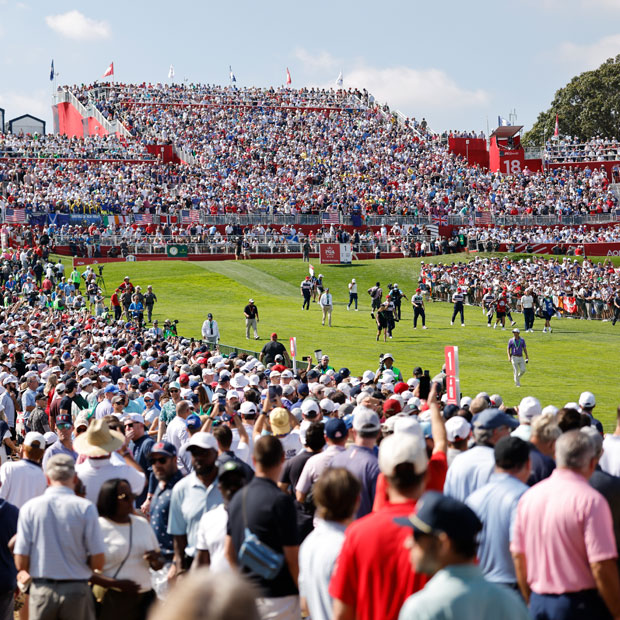






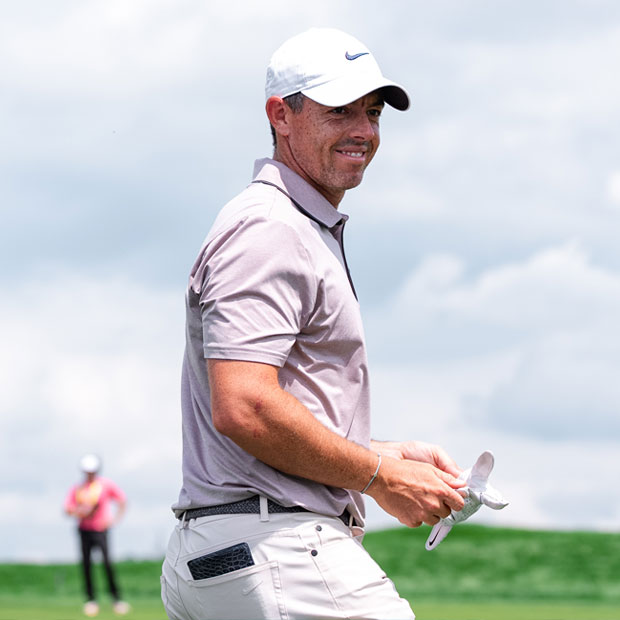
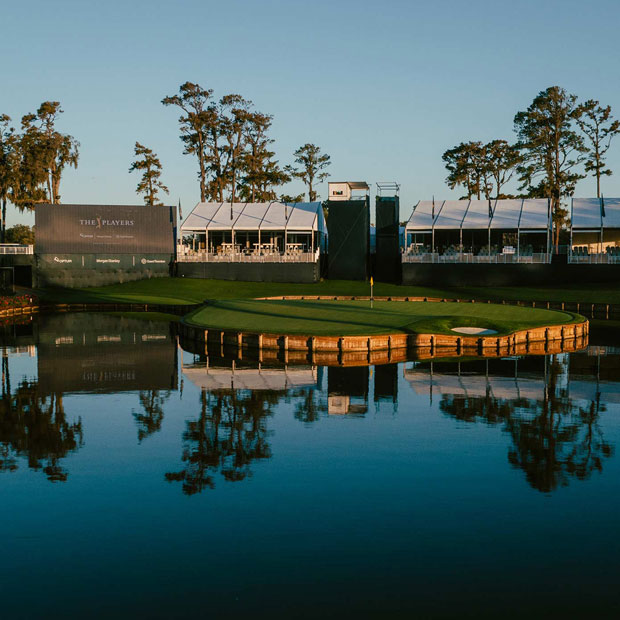
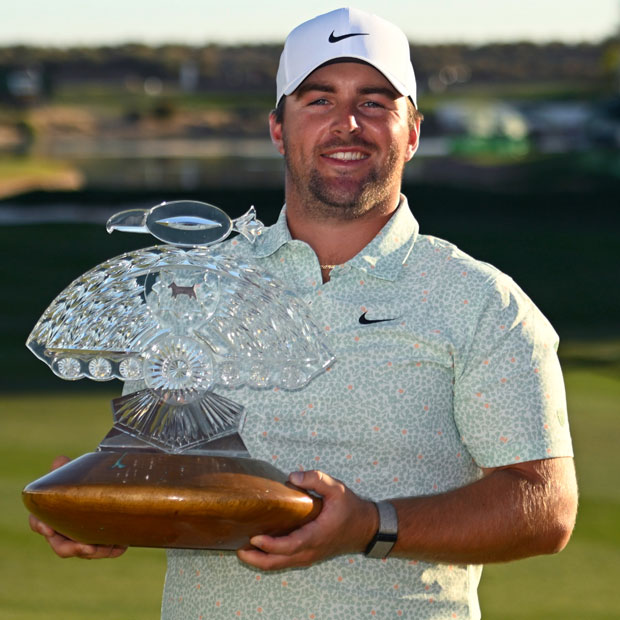

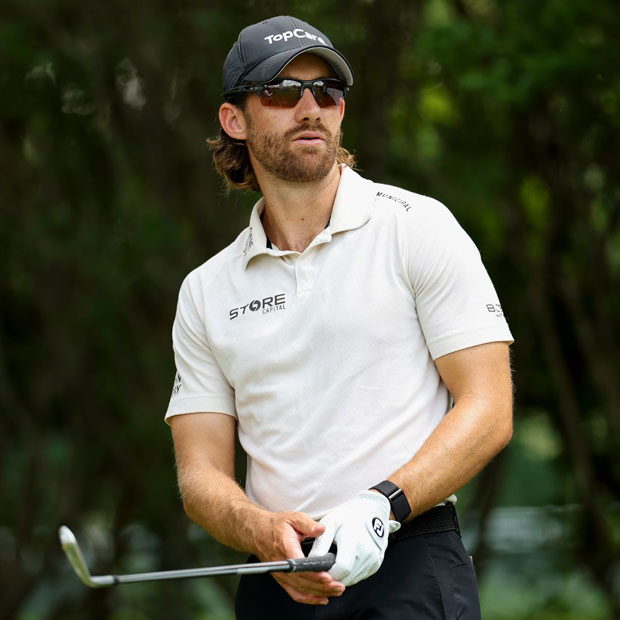
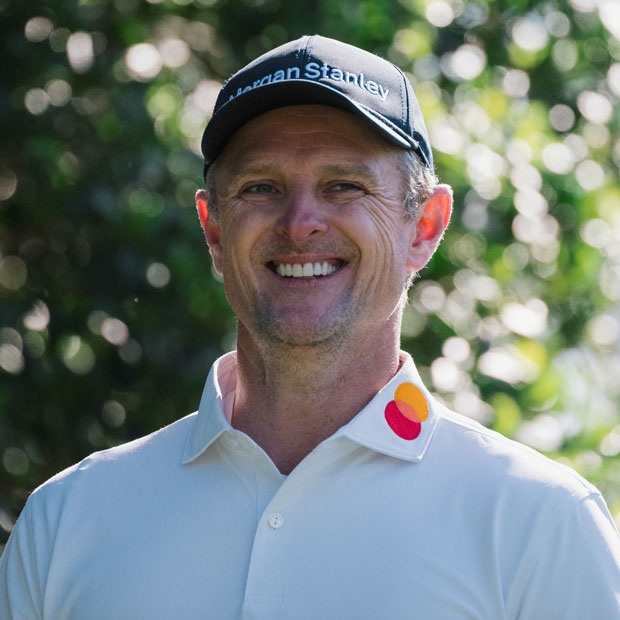
Leave a comment or start a discussion
Lorem ipsum dolor sit amet, consectetur adipiscing elit. Suspendisse varius enim in eros elementum tristique. Duis cursus, mi quis viverra ornare, eros dolor interdum nulla, ut commodo diam libero vitae erat. Aenean faucibus nibh et justo cursus id rutrum lorem imperdiet. Nunc ut sem vitae risus tristique posuere. uis cursus, mi quis viverra ornare, eros dolor interdum nulla, ut commodo diam libero vitae erat. Aenean faucibus nibh et justo cursus id rutrum lorem imperdiet. Nunc ut sem vitae risus tristique posuere.